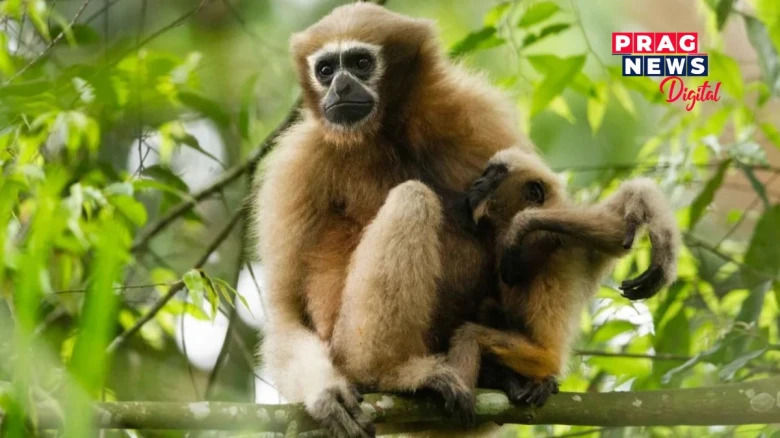Digital desk: On Thursday, the Krishi Mukti Sangram Samiti held a protest against the oil and gas exploration in the Holongapar Gibbon Sanctuary that is situated in Mariani, Jorhat district. This sanctuary is home to several flora and fauna including India’s only ape the endangered Hoolock gibbon. The protest started as the Central and State government granted permission to Cairn Oil & Gas, a subsidiary of private oil company Vedanta, to conduct crude oil and natural gas exploration in the sanctuary.
This decision has sparked negative reactions across the state, as numerous environmentalists and local communities expressed concern over the potential ecological damage. The approval for exploratory oil drilling in the sanctuary highlights the ongoing tension between the Government and environmental conservationist.
On the other hand, KMSS’s Jorhat and Mariani regional committees held the protest at Thana Tiniali in Mariani town. The protesters strongly opposed to the oil mining activities, emphasizing that the Holongapar Gibbon Sanctuary is a vital habitat for endangered species and should not be subjected to any industrial exploitation. They stressed that the sanctuary would remain completely free from any oil extraction activities.
Protesters also issued a caution to the government, demanding to withdraw the decision immediately. They threatened that if their demands were not met, they would to escalate the matter. Oil extraction in the sanctuary can disrupt natural habitat of numerous animals, oil spills can also harm marine life and affect groundwater quality.
While the project promises economic benefits, it poses significant risks to the wildlife, including the Hoolock gibbon, India's only ape species. The KMSS remains determined in its demands, asserting that they will continue to fight against oil exploration in the region until their demands are fulfilled. The government’s decision raises questions about the ecological environment and wildlife conservation.

Leave A Comment